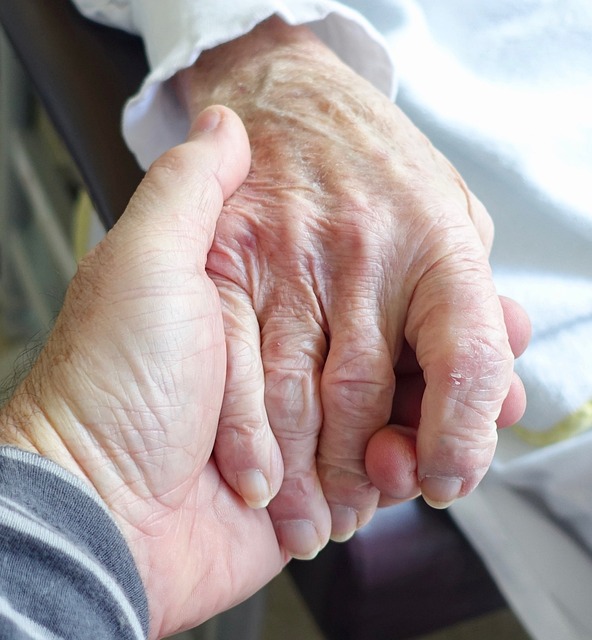Elderly companion services are designed to provide personalized care that supports the physical and emotional well-being of seniors, allowing them to age in place with dignity. These services offer companionship, assistance with daily living tasks, and health monitoring within the comfort of their own home, tailoring care plans to respect individual preferences, routines, and privacy. Caregivers are trained to form meaningful connections, which is key for addressing loneliness and social isolation. The aim is to enable seniors to remain independent and enhance their quality of life by providing one-on-one attention, help with chronic health conditions, daily activities like meal prep and light housekeeping, and emotional support. When selecting these services, it's important to consider the senior's unique needs, compatibility with the caregiver, scheduling, cost, and the provider's commitment to adhering to health and safety regulations. Effective management involves consistent communication, vigilant oversight, regular check-ins, and updating care plans as necessary. Coordination with healthcare providers ensures a comprehensive approach to the senior's care, maximizing their well-being and autonomy. Elderly companion services are a compassionate solution for those looking to maintain their independence and live comfortably in their own homes as they age.
When considering the well-being of elderly loved ones, understanding the intricacies of in-home care, particularly through elderly companion services, becomes paramount. This article delves into the multifaceted role these services play, the advantages they offer, and the essential aspects to consider when selecting and managing such support. Whether you’re exploring options for senior companionship or seeking guidance on maintaining the comfort and dignity of your elder at home, this piece aims to provide a comprehensive overview, ensuring you are well-equipped with the knowledge necessary to make informed decisions regarding in-home care solutions.
- Understanding the Role of Elderly Companion Services in Home Care
- Evaluating the Benefits and Considerations of In-Home Care for Senior Companionship
- How to Select and Manage In-Home Elderly Companion Services for Your Loved Ones
Understanding the Role of Elderly Companion Services in Home Care

Elderly companion services play a pivotal role in the realm of home care, offering a supportive presence that addresses both the physical and emotional needs of aging individuals. These services are designed to provide companionship, assistance with daily activities, and monitoring of health conditions, all within the comfort and familiarity of the senior’s own home. This level of personalized care enables seniors to maintain their independence while also promoting a sense of security and well-being. A key aspect of these services is the development of a tailored care plan that respects the elderly individual’s preferences, routines, and privacy, ensuring they receive support that aligns with their unique lifestyle. Compassionate caregivers are trained to engage with seniors in meaningful ways, fostering relationships that can mitigate feelings of loneliness and isolation often experienced by the elderly. With a focus on quality interaction and attentive care, elderly companion services empower seniors to age in place with dignity and comfort.
Evaluating the Benefits and Considerations of In-Home Care for Senior Companionship

When considering the best care options for elderly loved ones, in-home companion services emerge as a tailored solution that blends companionship with assistive care. These services are designed to provide seniors with the support they need to maintain their independence and quality of life within the comfort of their own homes. The benefits of in-home elderly companion services are manifold, ranging from one-on-one personalized attention to the ability to manage chronic health conditions more effectively. Caregivers can assist with daily tasks such as meal preparation, light housekeeping, and medication management, while also offering emotional support and a meaningful connection that combats loneliness, a common concern among the elderly.
Furthermore, in-home care allows for a seamless integration into the senior’s existing routine, which can be less disruptive than transitioning to an assisted living facility or nursing home. This continuity is crucial for maintaining mental and physical well-being. However, when evaluating these services, it’s important to consider factors such as the level of care required, the compatibility between the senior and the caregiver, and the logistical aspects of scheduling and cost. It’s also vital to ensure that the service provider has a track record of reliability, professionalism, and adherence to health and safety standards. By carefully weighing these benefits against considerations, families can make an informed decision that aligns with their loved one’s needs and preferences, fostering a nurturing environment for senior companionship.
How to Select and Manage In-Home Elderly Companion Services for Your Loved Ones

When considering elderly companion services for your loved ones, it’s crucial to conduct a thorough assessment of their needs. This involves evaluating their health status, daily routines, and personal preferences to ensure the selected service aligns with their requirements. Look for agencies that offer tailored care plans; these are designed to address specific challenges faced by seniors, such as mobility issues or cognitive decline. Interview multiple providers to understand their approach to care—inquire about staff training, care philosophy, and how they handle emergencies. It’s also beneficial to choose a service with flexible scheduling to accommodate changes in your loved one’s condition or personal preferences.
Once you’ve selected a provider of elderly companion services, effective management involves ongoing communication and monitoring. Establish regular check-ins with the caregiver and family members to discuss your loved one’s well-being. Monitor the quality of care by being present during visits, if possible, or by discussing incidents and behaviors with the caregiver. Ensure that the care plan is reviewed and updated regularly to reflect any changes in your loved one’s condition or new needs that arise. Keep all relevant parties informed about care progression, including healthcare providers, to ensure a cohesive approach to your loved one’s health and happiness.
When considering the well-being of elderly loved ones, the role of elderly companion services within home care emerges as a vital aspect. These services not only offer companionship but also ensure seniors can maintain their independence and quality of life in familiar surroundings. Navigating through the benefits and considerations of in-home care for senior companionship requires careful evaluation to align with individual needs. Ultimately, selecting and managing the right elderly companion service is a decision that can greatly enhance the lives of seniors, providing them with the support and companionship necessary to thrive. For families seeking the best for their loved ones, these services offer a compassionate and practical solution in the comfort of home.




